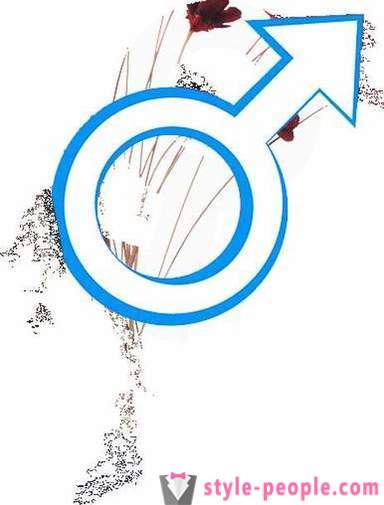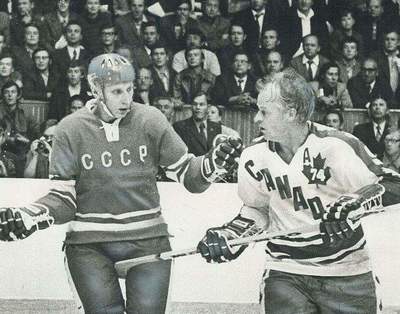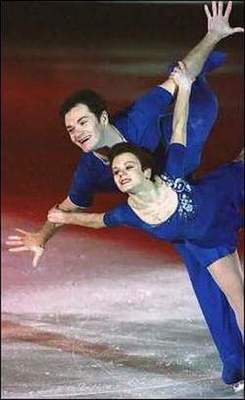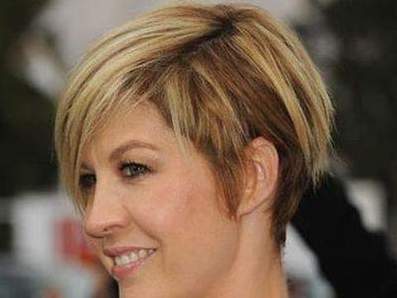Avtorka, rezhisserka - it is humiliating, why women are so few places in the Russian language
Feminitivy in Russian society are discussing about 5 years, and in Europe even more. But it is simpler and clearer, this topic has not yet become: while some media are already actively use the words "avtorka", "spetskorrka", "blogerka" people in the comments react to them aggressively, accusing feminists and their supporters in violence over the tongue . Heroine understands, there is a real need for feminitivah why they are so bad take root in society and whether it is possible to make our language equal, without violating its rules.
Why fight for feminitivy - Nonfictional this issue

feminitivov theme is such a tough debate in society, not because people are against the idea of labeling activities, which are held by women, the corresponding words. There is more important than what the initiative submitted. It comes from the feminists, and the ratio is still negative to them in Russian society. To stereotype that all feminists - lesbian, do not shave their armpits, we did not find a normal guy, add another mocking accusation - they want to distort our language.
The fact that the attitude towards increasingly negative feminitivam in Russian society, confirmed recent studies. For example, according to the agency "MP Analytics", which conducted a telephone survey of 1792 people, 66% of Russians believe that feminitivy do not need (this answer scored from 61% to 71% in all age groups). 26% admit endings change in the case of an established form of feminine nouns (eg, "artist", "teacher") and only 5% require a change to the end of all professions and occupations without exception. The latter measure supports 14% of young people aged 18-24 and 4-6% in other age groups.
According to the public opinion poll institute "Anketolog" in which participate 1,500 people over 18 years, 67% of people find it impossible to ubiquity in the speech of new feminitivov. 56% believe that the appearance of the words "blogerka" and the other is caused by a decrease in the level of literacy in the country, and only 4% have a positive attitude to the word "avtorka.

If the initiative to create a name for each male profession analogue feminine made, for example, linguists or officials, people probably would have resented, as we all unusual, but certainly not as aggressive. At the same time, despite the fact that the problem raised feminitivov femsoobschestvo, it is not only the social justification (to make women more visible), but also linguistic. For example, the lack of designation of many professions and occupations in the feminine significantly complicates language: every word is necessary to add one more - "woman president", "woman doctor".
Even worse is that there are proposals like: "Scientists have proposed the idea of", "illustrator received an award." The use of the noun is masculine with feminine adjective can not be called a harmonious for the Russian language, but we have to say and write so much because of lack of alternatives.
As much as people have struggled for the "purity" of language, and integrity standards, any question - it is a living structure, which is also constantly striving for simplification. Thus, the "dining room" eventually turns into a "dining room", "Metro" in the "Metro" and "girl student" in "student". From this point of view feminitivy - just another way to make our language is more convenient, clearer and easier.
The idea is not new feminitivov
The assertion that feminitivy - another invention of feminists, unfair, if only because they exist in the Russian language at all times. Few people are surprised by the words "artist", "poet", "cleaner", "waitress", and before that was "tovarki" (from a male "friend"), "chtitsy" (from "The Reader"), and even "lektorshi" and "aviatorshi".
That is, in fact, the proponents of normativity "avtorki", "rezhisserki", "psihologini" and similar designations require only expand an existing group of words, rather than create a new one.
Pros: our language lags behind reality
The most important argument of supporters feminitivov - the idea that the language reflects society and shapes people's thinking. The question is, what comes first: the language and thinking is controversial, but it is unlikely someone would agree that hearing the word "director" or "surgeon", is, rather, a man than a woman.

So, while in the media, literature, legal documents, and everyday communication of people represent predominantly masculine noun, women are erased from the professional field, leaving only the nurses, waitresses, nurses and dancers, but in any case not the presidents or leaders.
With this opinion agrees, for example, head of the Russian language and the style of the faculty of journalism of the Ural Federal University named after the first president of Russia Boris Yeltsin Elina Chepkina. That's how she commented on his attitude to feminitivam in an interview Znak.com:
When there is more in the language of words, after the names of women, it makes women more visible in society. To some it may seem that now all of a sudden picked up and attended feminitivami, but before it was not, and lived well. But this is not the case. For a number of titles in the language of women was and is always: a teacher, a writer, a journalist. These words, we know for a long time and consume. ... The greater public attention to women and their rights are always improves the position and others.

A common complaint against the new type feminitivov "spetskorrka", "advokatessa", "prezidentka", "kapitanka" - these words are not in the Russian language. But supporters of the feminization of speech argue that early in principle there were no words. No phenomena - no words, so we do not have to say "advokatessa", because women were not in the profession. Now they are working lawyers, judges, politicians, and in modern life this is the norm, but in the language - is still there. That "the remaining" and offer to remove feminists. Although appropriate to say that the act of feminitivy not feminists and their supporters, because this initiative a positive attitude and those who do not identify themselves as fighters for equality. Writer and poet Lenore Goralik in an interview "Real time" said that does not rule out that modern feminitivy become linguistic norm:
While I do not use them, but do not be surprised if she will not even notice as they will appear in my speech: I am by nature descriptivists, I was terribly interested in living life language, and I can see how gradually feminitivy of the marker of the radical positions are converted into a variety of linguistic norm. It is quite fascinating to watch (I think I was lucky to witness this amazing phenomenon of language), and it seems to me that the story is just beginning feminitivov.
The case against: feminitivy break language and humiliate women
Arguments against feminitivov as in their favor, too, can be divided into ideological and linguistic.
Let's start with the first: feminitivy make language is strictly binary, saying - you're either a man or a woman. And what about those who do not wish to identify themselves as a particular gender, that is queer-persons?

cisgender people also do not necessarily want to focus on their affiliation to the floor, especially if it comes to a professional environment. Why emphasize that you are a woman manager, does that make you better or worse as a specialist? Designation of the profession in the masculine gender, they are perceived as neutral, rather than as a purely masculine. Therefore, many women do not mind to be called a director, politician, scientist - for them it is just a way to emphasize equality with men.
Linguistic arguments are related to the way the new feminitivy formed. In Russian, for this there are several suffixes. For example, "-sha" - "the captain", "Blogersha", "avtorsha". He is quite familiar to the Russian word formation, but feminists refuse from using it, explaining it by the fact that, traditionally with this suffix, as well as with "-iha", formed words for someone's wife - "governor", "general's" "merchant's wife", "Miller". But this belief seems far-fetched to many, there is the word "secretary", which no one does not associate with the Secretary's wife. Even if "the captain" has the connotation of belonging to her husband, begin to use the word with a different meaning, and it will cease to be read over time.
With the suffixes that feminists considered acceptable for the formation of new feminitivov, everything is not okay. So, with the "Spoken" good fit words, which based on the last syllable of a shock, "student - student", "journalist - journalist", "a waiter - waitress." But "the editor - redaktorka", "menezhder - menedzherka" much stronger cut ear.
Another problem is that the "Spoken" - multifunctional suffix. With him also form Abbreviations - "Finnish knife - Finn" - which led to unnecessary homonyms. Another of its task - the formation of diminutive words, and this is attached to the words "advokatka", "blogerka" derogatory and mocking sound. And if the problem is new feminitivov - to make women more visible and respected in the community, the word with the suffix "Spoken" is unlikely to help here.

As the suffix "-in" that feminists borrowed from the "goddesses", forming "psihologinyu" and "bloginyu". It sounds funny and silly, but why? Because the suffix is an archaic and almost never used in feminitivah. Language - a very intuitive thing, we first begin to speak it, and only then learn the rules by which it is formed. Therefore, even people far from linguistics, immediately feels when the words start to be created against the so-called norm. He can not always explain it logically, more likely, simply say, "It sounds ugly," "It breaks the language", "So do not tell." But feel this abnormality fails sure. That's why the idea of starting to use the word "avtorka", "blogerka" and expect that over time will get used and will catch up, not very viable. That the words did not cause rejection, they must follow the laws of language.
The writer, a leading broadcast, teacher journalistic skill Elena Chernikova:
The spirit can not stand these feminitivy. I love Russian grammar. She ically mathematical, strict. According to the rules, has not yet been canceled, the names of professions write a masculine noun. The doctor, not doktorka. Critic, not kritikessa. It is not enough literaturovedki. Yes, we are accustomed to a ballerina, ballet dancer but if we say, it is clear that we are embarrassed and disapproving joked. There is a line, and intrude funny. Now the media is red-hot controversy feminitivy in the game, and I can not understand on whose side of the field the ball. In short, the word "writer" seems to me painted, and the word "writer" - neutral.
Writer Tatyana Tolstaya:
Feminitivy - it's disgusting. No word "avtorka" in the Russian language, and I hope it will not. Unnatural. It sounds like a word from some other parallel to a Slavic language. Czech comes to mind. There's a woman, take Marlene Dietrich, Marlene will Ditrihova. The fact that she Dietrich - it does not matter. Dietrich - is, first of all, the husband. They are all required to feminize. Why should we, our great and mighty change on this principle?
How to make the language an equal, not breaking his
Our language, like many others, is really largely discriminates against women, and the desire to fix it - a good thing. But if it will complicate our lives or be contrary to the laws of language, the idea is doomed to failure - such innovations just do not take root in everyday speech.
That's what says about this, Doctor of philological sciences, professor Maxim Krongauz in an interview with RT:
Attempts to eliminate the discrimination of language - an important thing. But sometimes they lead to its complexity, while he strives for simplicity. If we remove from the public sphere offensive words, then that's fine. Another thing, when the word has no negative associations, suddenly declared bad. Native speakers do not feel, but criticized the fact that they are racists and nationalists. If a person does not use feminitiv "avtorka", it could be accused of sexism. But this is not the case, any negative intentions of the person does not.

There are two main ways to make the language an equal, without breaking it: the linguistic and grammatical. The first - to make feminitivy in accordance with the natural movements of the tongue (using the suffix "-sha" at the end of the base and unstressed "Spoken" on drums) and wait until people get used to the fact that this is no longer the vernacular, but the norm.
Grammar way faster and, in fact, it is already being implemented: include the word "doctor", "scientist", "President" to the general nature of the type of word "orphan", "clever", with which we can use adjectives like a male, and feminine endings ( "a good girl", "how clever" - sounds the same fine). We are already writing, "the president said," "the politician said," it remains only to fix it in the dictionary, changing the kind of words with a common male.
No matter how fair or had a desire to do the supporters of feminist language equal, policy and violent methods are not suitable. That's why several years of disputes about feminitivah in the Russian Internet to the words "avtorka" and "blogerka" still no one was used to.
An expert international agency "UN Women" Elena Mezentsev:
There were many in recent years, borrowing from other languages, from the IT sector as well. Who instilled in us the word "HYIP"? A "blogger"? Yes, no one. Feminitivov among these innovations in the language used by people and therefore can not see that they do not like the natural way.
In our opinion, the best thing you can do with the theme feminitivov right now - let people use such words, if it's important, but to clarify the common rules of their formation: what specific suffixes should be used, but from what should be abandoned. Take away from women the opportunity to define its identity, saying that what it does - it is wrong. As well as criticizing those for whom the emphasis on gender in the professional field seems to be redundant.













































